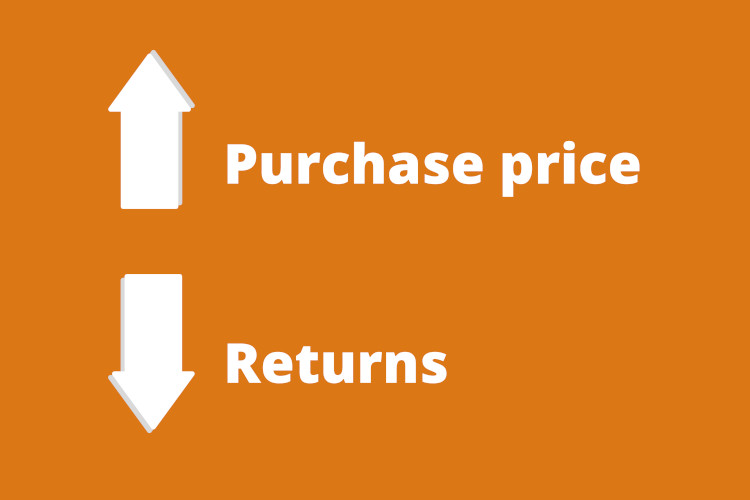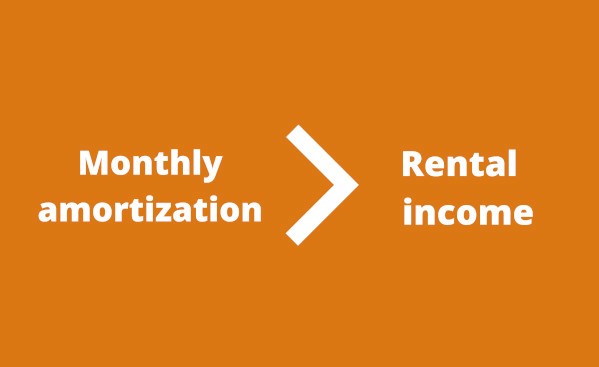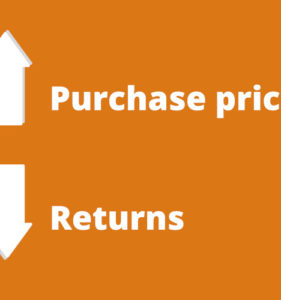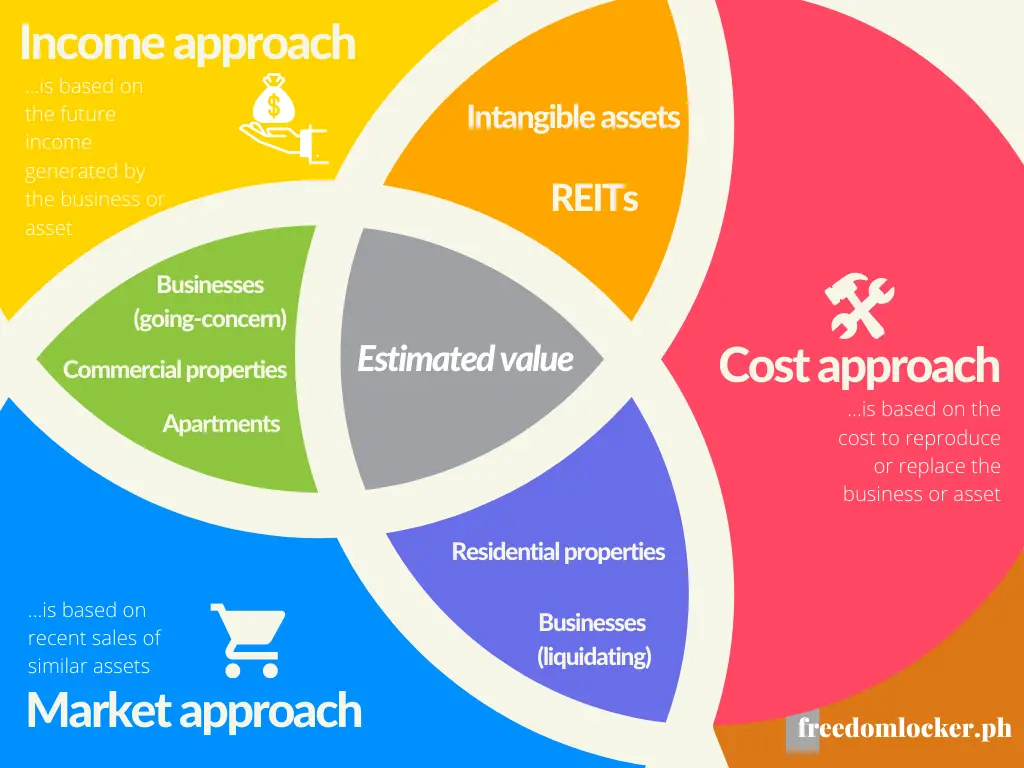It’s rather ironic for a blog advocating real estate investments to say anything bad about real estate. It’s still my preferred investment for financial freedom, don’t get me wrong, but it is not without flaws and a good property can be a bad investment.
I’m not talking about real estate property for personal consumption — we’re emphasizing real estate properties as an alternative investment class.
Real estate investments can be bad for a number of reasons. Some reasons are as glaring as “bad location” but others are not as obvious. Here are 9 hidden ways an otherwise good property can be a bad investment, in no particular order.
(Related: Is a condo a good investment? Rarely… Here’s why)
Page Contents
- 1. Buying a good property above fair market value
- 2. Yielding bad cash flow
- 3. Buying property based on emotions
- 4. Overbuilding renovations
- 5. Needing cash
- 6. Wanting to get rich quick
- 7. Forgetting about property management
- 8. Renting is a better option
- 9. Failing to diversify
- Conclusion
- Infographic: 9 Ways a Good Property Can Be a Bad Investment
1. Buying a good property above fair market value
Investments are all about maximizing returns for a given risk tolerance level. (Related: Where to invest money for beginners: 3 things to know first)
Holding all things constant, a higher purchase price lowers an investor’s returns.
Let’s assume a property was bought at 1 million and it yields a 10% return or around 100,000 per year. We’ll assume this is the rental income that the property is able to generate.
If the property was instead bought at 2 million, the 100,000 per year now yields a 5% return. (We still use 100,000 because it’s the same property, just bought at a higher price.)

The 5% return is significantly lower than 10%. The investor’s money would’ve been better placed in another investment. This opportunity cost makes the property a bad investment.
We’re not discounting the fact that it may eventually turn out to be a good investment depending on what happens in the future, but holding all things constant, buying above market value lowers an investor’s returns.
2. Yielding bad cash flow
A common trap is to think all real estate properties are investments. A corollary to this is an investor buying anything real estate, even if it yields negative cash flow.
This is prevalently seen with salaried employees hoping for security or wealth by taking out a loan on a condo.
Loans are fine by themselves (in fact, arguably a necessary tool for faster growth), and there’s nothing wrong with condo units. (Re-emphasizing that these are property investments as opposed to personal consumption purchases.)
But more often than not, monthly loan amortizations will be higher than what the properties rent out in a fair market. Any investment that returns negative cash every month for a prolonged period is already disadvantaged.

One argument against this is saying real estate investments eventually recover with higher property values in the future. In other words, even if it yields negative cash right now, higher rents will eventually catch up to produce positive cash flow.
I generally agree that timing the market is trivial for buy-and-hold real estate investors. Real estate investments for the long-haul are typically okay. But it’s a bad investment decision to buy real estate with negative cash flow because there are other properties that give out positive cash flow. Yes, positive cash flow properties are hard to find but trust me, they exist.
3. Buying property based on emotions
A lot of investors buy based on emotions. Related to the previous point, this isn’t a problem if the property is for personal use. But as an investment decision, emotions cloud our judgment. (Related: Lessons from Thinking, Fast and Slow by Daniel Kahneman)
For example, buying a property because it’s near the beach without considering the financials is an emotional choice. Or buying a house because you love the patio. Even buying your first property as a couple can be an emotional choice — I am speaking from experience. Be careful!
As long as the decision isn’t based on a property’s numbers, it’s more likely an emotional choice. And be wary, emotions can cause a confirmation bias where you end up convincing yourself the numbers are good.
4. Overbuilding renovations
Emotions also plague renovating a property — emotions are starting to become a recurring theme here. Renovating or rehabbing a property based on what you’d like to have can make a good property turn into a bad investment.

Remember that this is an investment property, not your house. The lower the costs you incur, the higher you take home in returns or profits. A common argument I hear is that better-looking properties attract better tenants. This is true! But it can surely go overboard.
What’s overboard will vary based on the property’s target market, location, etc. Let’s pretend it’s a low-cost apartment targeted at markets C or D. Installing rain shower bathrooms is probably a bad idea. Unless people from the neighborhood expect it, I guess? 路♂️
5. Needing cash
Real estate investments are notoriously illiquid. Your cash is tied when you invest in real estate and you shouldn’t be investing in real estate if you have short-term or medium-term liquidity needs.
It gets even worse when you have unexpected needs for cash and attempt to sell the property at depressed prices. (But before selling, always consider the other ways to get cash out of a property.)
All else being equal, only buy real estate when you’re certain you have sufficient cash covering emergencies, expected expenses, and unexpected expenses. An otherwise good-property with good cash flow can be a bad investment if it strips you of liquidity, forcing you to make unwanted transactions.
6. Wanting to get rich quick
Investing in real estate is a get-rich-slow scheme. No one gets rich or wealthy with just one property. It takes a portfolio that’s developed over time.
The good news is it gets easier as you grow. The first property is actually the hardest — and frankly scariest!
Real estate is a bad investment choice for those wanting to get rich quickly. But really most investments aren’t get-rich-quick schemes anyway.
7. Forgetting about property management
Investing in real estate is unlike buying dividend stocks. It’s not a buy-and-forget endeavor. Failure to properly manage a property can turn it into a bad investment.
From unexpected repairs, collection fees, or even just forgetting about the effort that it takes to manage a property. In some cases, uncollected rent becomes the rule and this information spreads to other tenants. Before you know it, uncollected rents pile up and you now have to face the nightmare of evicting tenants. In worst cases, the trauma scares investors enough to refuse future property investments altogether.
If buy-and-forget is what you expect from real estate, then REITs are a better investment choice (but with less upside).
8. Renting is a better option
Surprise! Renting or leasing isn’t always the inferior option. This myth is very much widely accepted — why rent when you can buy. If monthly amortization (from the loan to buy the property) and rental payments (paid to use another property) are the same, then common sense will say it’s better to just buy and not waste your money on rent.
But in the economic sense, renting is sometimes a better choice.
Although I don’t see myself renting, it doesn’t mean it’s always a bad choice. Some economic reasons that justify renting include:
(1) The saved money on downpayment can be invested in other financial instruments, say stocks. The returns from these stocks are actually a cost to buying the property. Meaning, if you bought the property, you would’ve missed out on investing in stocks or other alternatives.
(2) Renting means you save on property taxes, maintenance costs, and similar expenses. These costs can be significant costs with no residual value. Meaning they are like rental payments, unrecoverable when incurred.
(Related: Is Renting a Waste of Money: The Financial Advantages of Renting a Home)
If you’re in a market where renting is a better option, it’s probably best to invest in another market or switch your niche. (More on switching niches below.)

9. Failing to diversify
As a real estate investor, it’s good to master a niche rather than trying multiple markets at once. (Related: The Millionaire Real Estate Investor by Gary Keller)
But a good property can become a bad investment when it’s prudent to switch niches. This doesn’t mean switching markets regularly. What this means is you can reach a point of oversaturation where diversifying becomes the better option.
It’s still best to focus on a niche. For example, low-cost apartments in Palawan. Once you’ve reached a point of saturation, it might be best to either pivot in class (i.e., from low-cost to mid-market), in location (from Palawan to Cebu), or some other feature.
Conclusion
These are some of the reasons why I think any good property at any good location can become a bad investment. There’s quite a distinction between what’s a good property and what’s a good investment. The important lesson here is that different conditions impact what’s good or bad. In my years of corporate financial advisory, or as an entrepreneur, or as real estate investor, the one-constant answer to questions is “it depends.” Like it or not, the best answer will most likely depend on your unique circumstances.
(If you’re unsure, send me a message through our contact form or my Instagram. I enjoy talking about these things so don’t hesitate.)
I doubt this is an exhaustive list! Let me know in the comments section below of other hidden reasons. Maybe we can post a part 2. That’s definitely something I look forward to!
Infographic: 9 Ways a Good Property Can Be a Bad Investment
Read more, select a topic:









